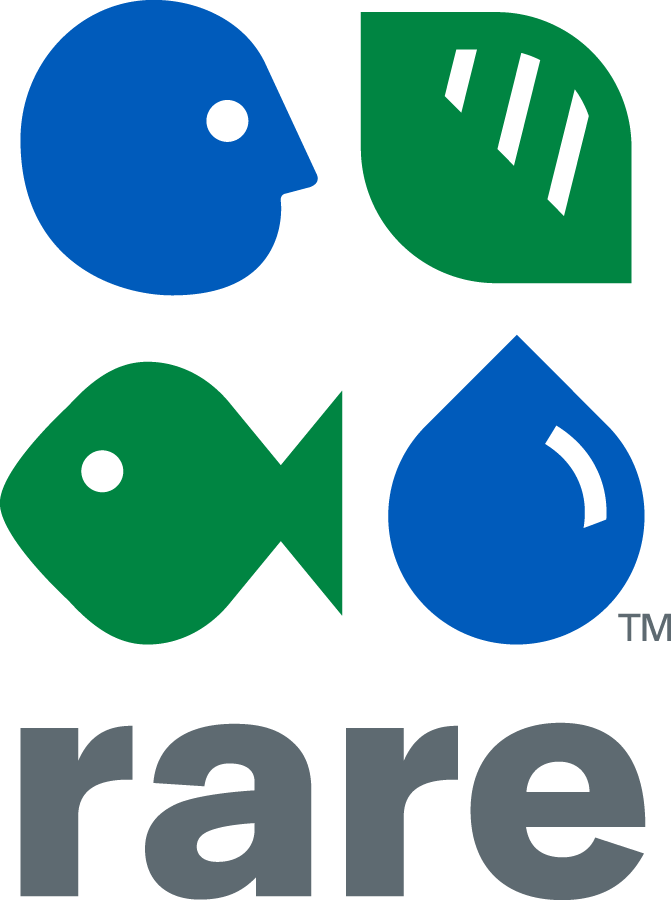How Women
in Coastal Fisheries are Adapting to Climate Change
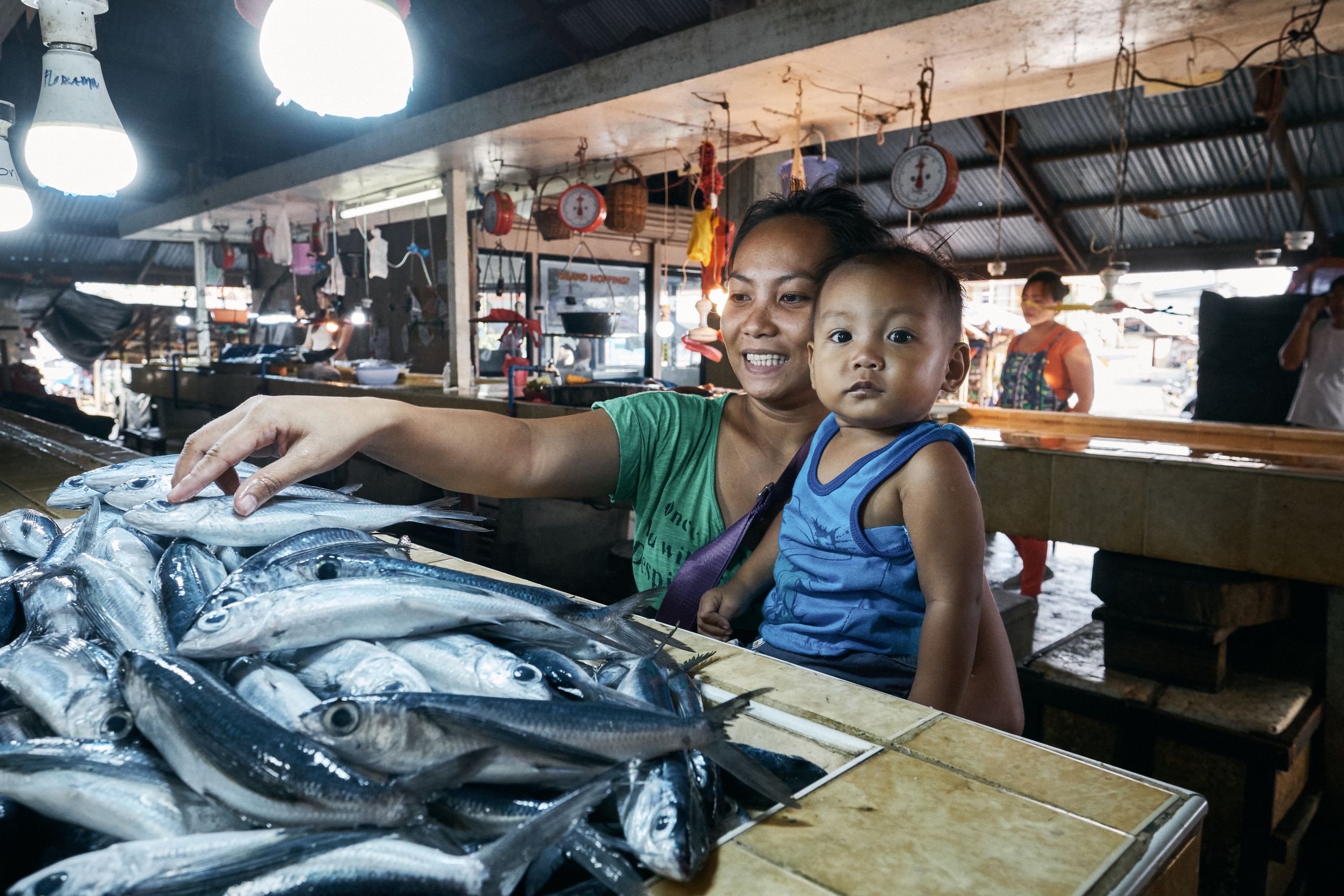
In the major fish-producing countries of the Philippines and Indonesia, women are taking on leadership roles in fisheries management and helping coastal communities adapt to climate change.
When super typhoon Haiyan devastated the island town, Pilar, in 2013, Municipal Disaster Risk Reduction Officer Susan Cataylo (pictured) discovered the value of her town's marine protected area: the strong waves that washed fish ashore saved residents from starvation when the storm cut off the town's food supply.
In her current role as Municipal Planning and Development Officer, Cataylo continues to lead local initiatives to rehabilitate coastal ecosystems and fishing grounds. Against a backdrop of mangrove forest that shelters fishing communities from strong waves, she details Pilar's climate challenges in a recent interview with the German broadcaster Deutsche Welle.
Cataylo represents a growing number of women leaders exerting influence on coastal fisheries management across the Philippines, Indonesia, and other major fish-producing countries. The Food and Agriculture Organization, in its 2020 State of World Fisheries and Aquaculture report, noted that women “play a crucial role throughout the fish value chain” as laborers and entrepreneurs, but their participation is often not recognized. Gender studies and NGOs estimate that women make up half of the workers in fisheries, if primary and secondary sectors are considered, according to the report.
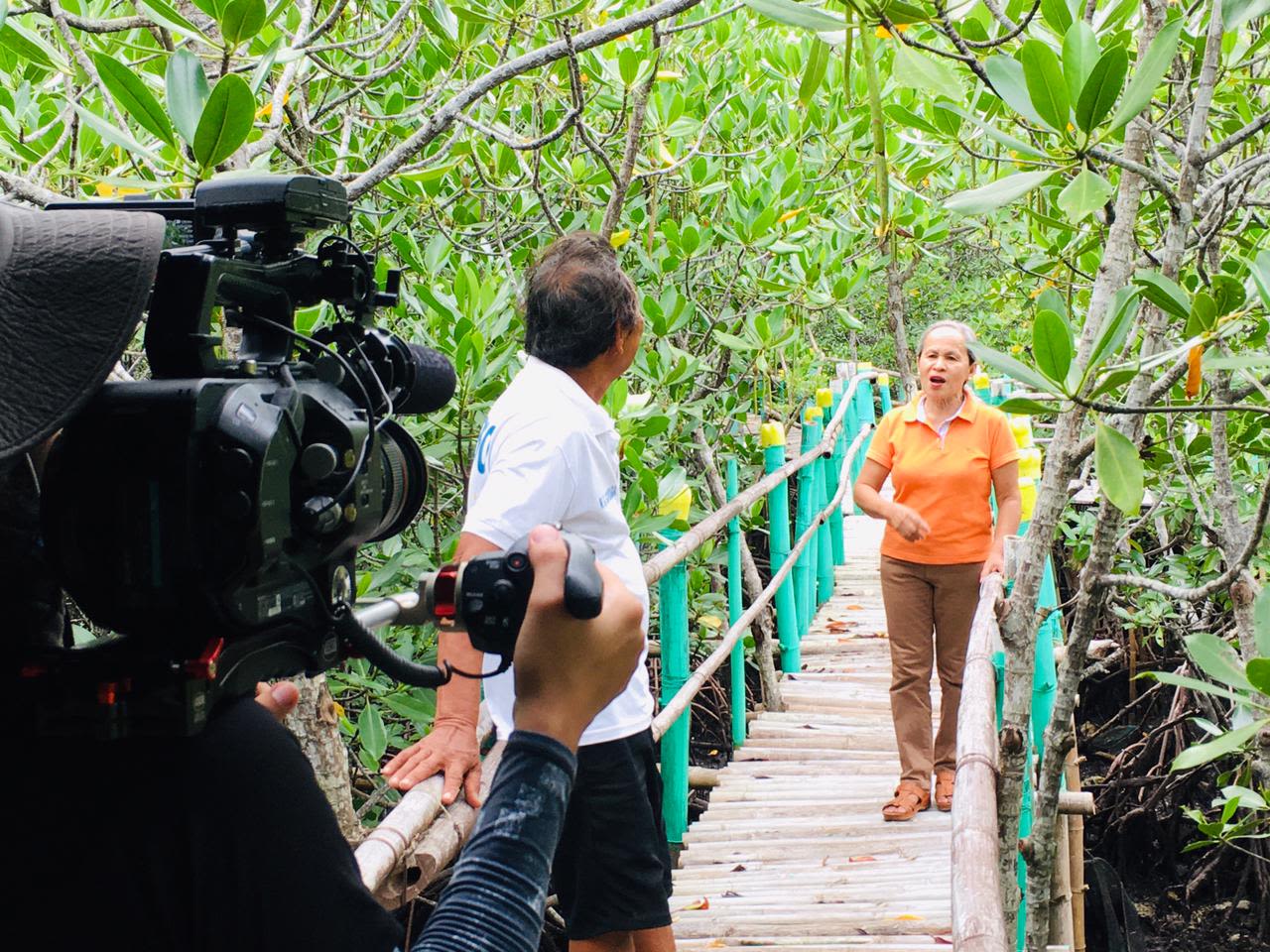
The image of men as fishers and their wives as fish vendors has become a common misconception among consumers. In reality, women play a wide range of roles in small-scale fisheries, from processing seafood to designing marine reserves.
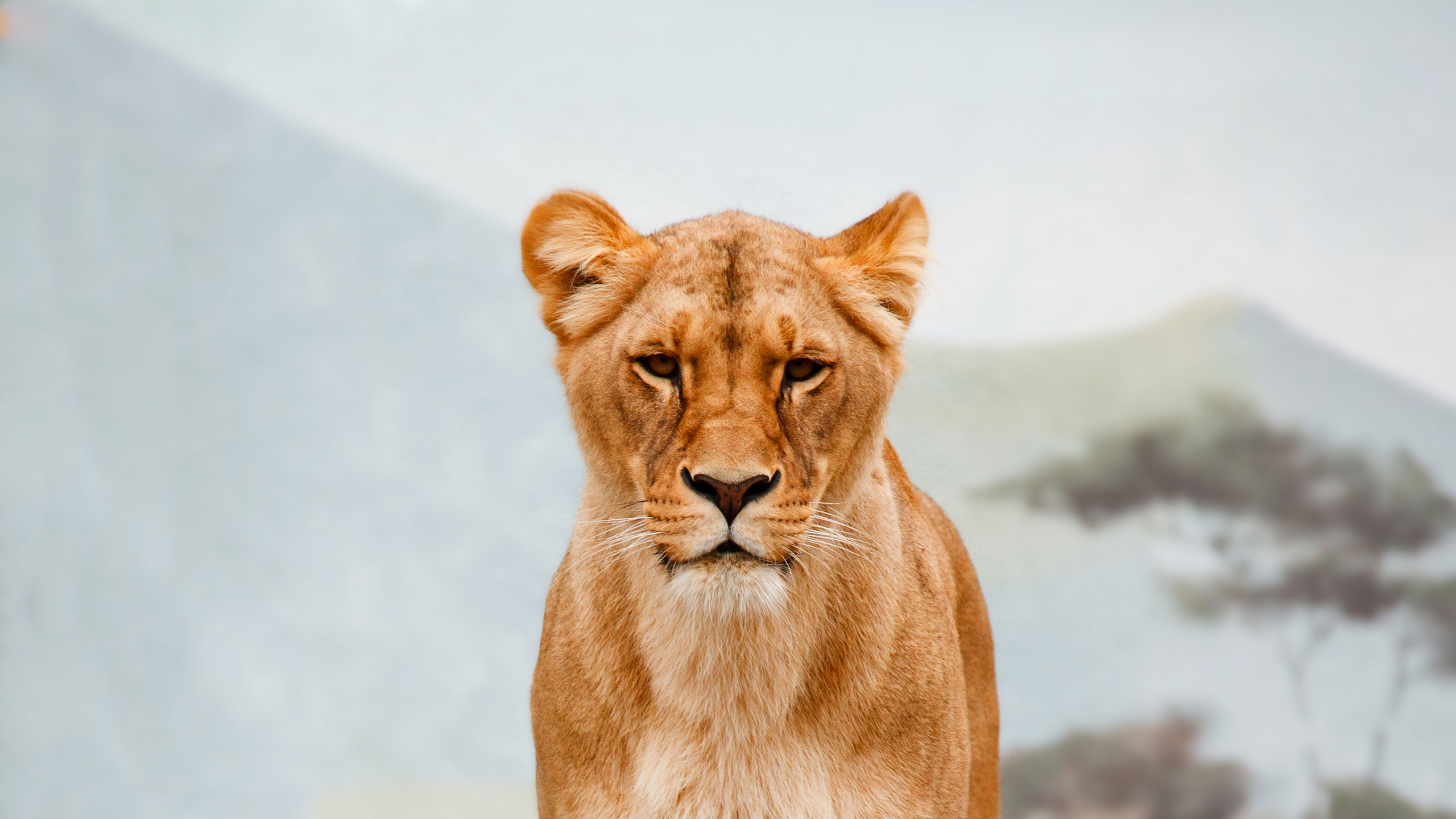
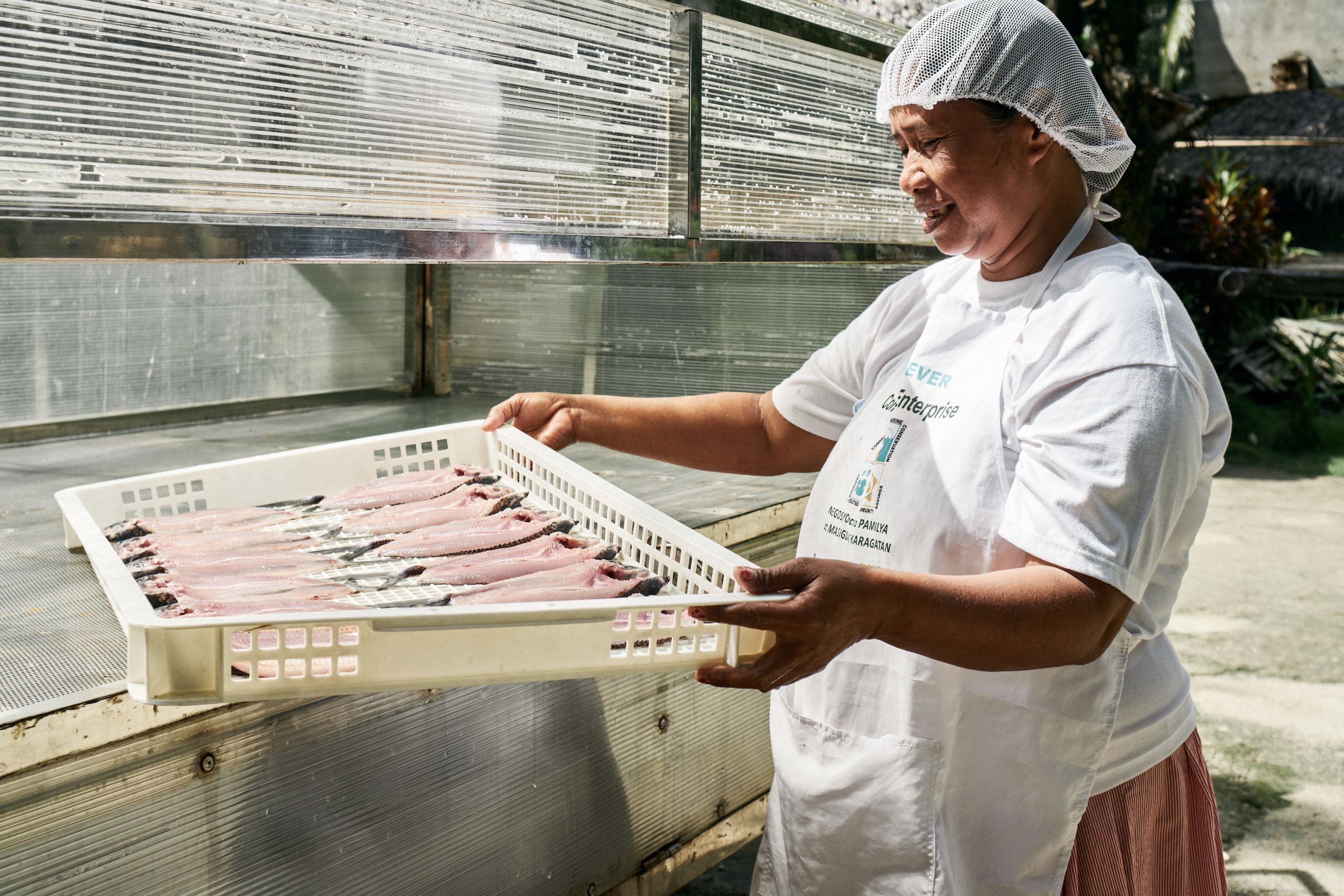
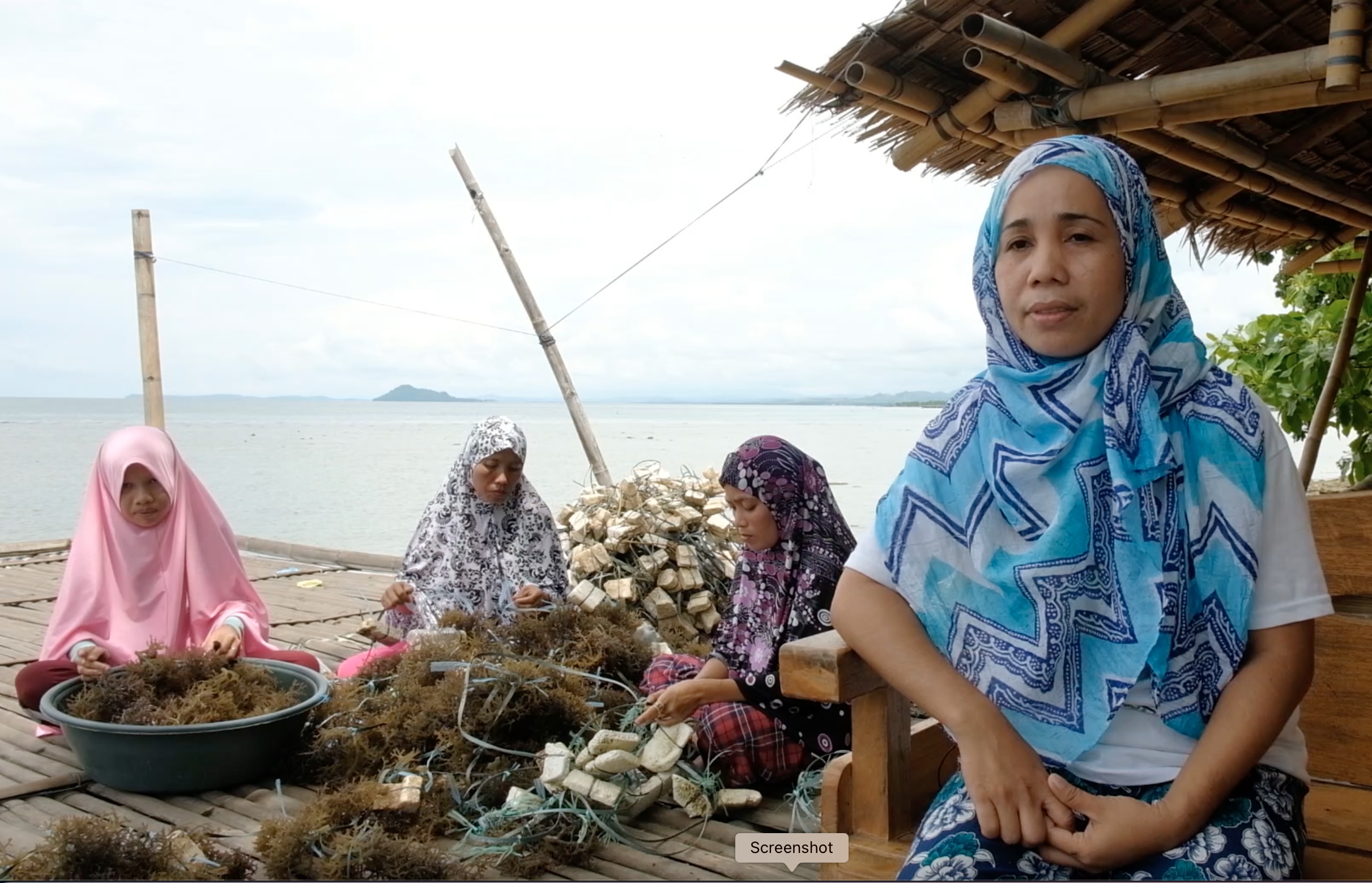
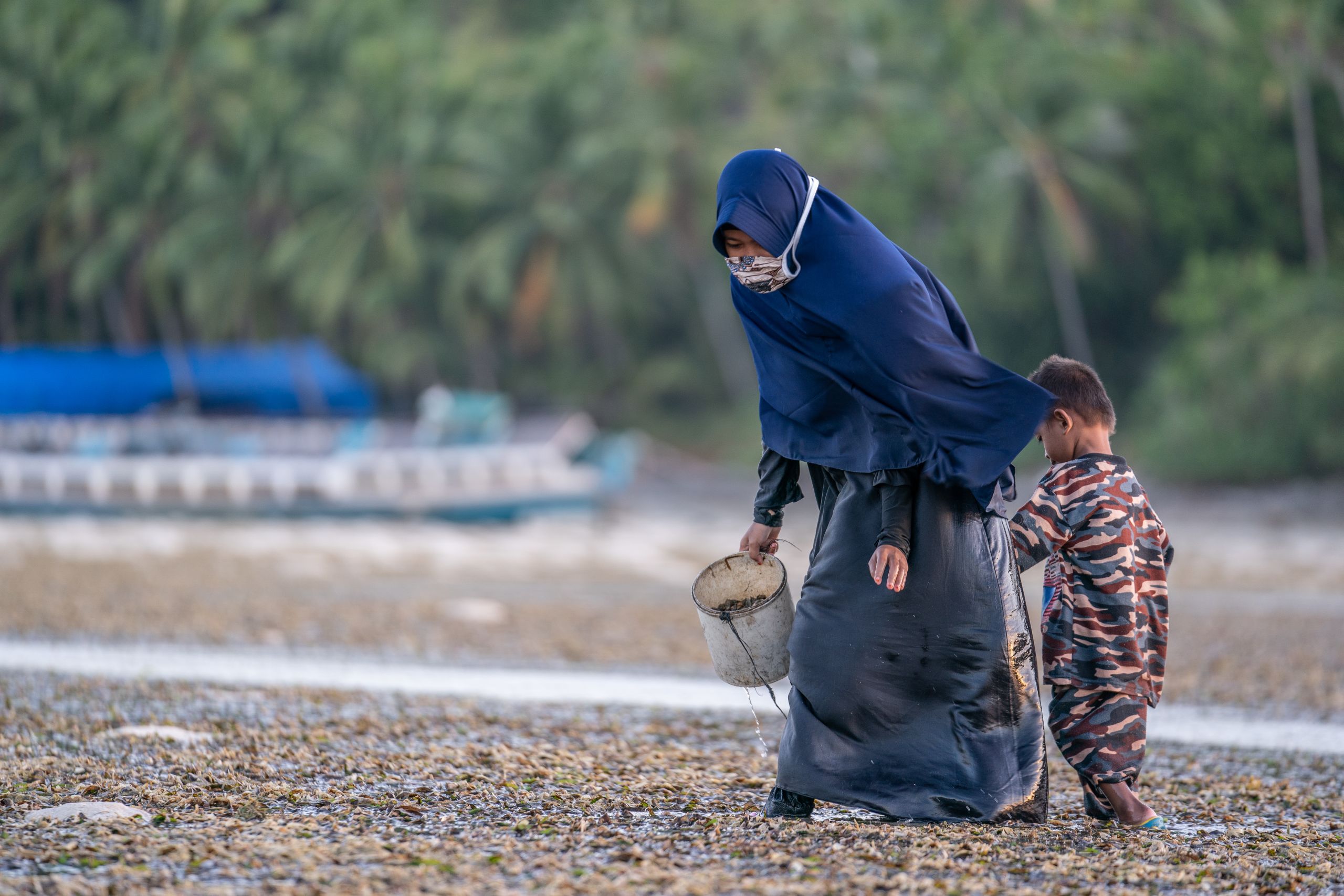
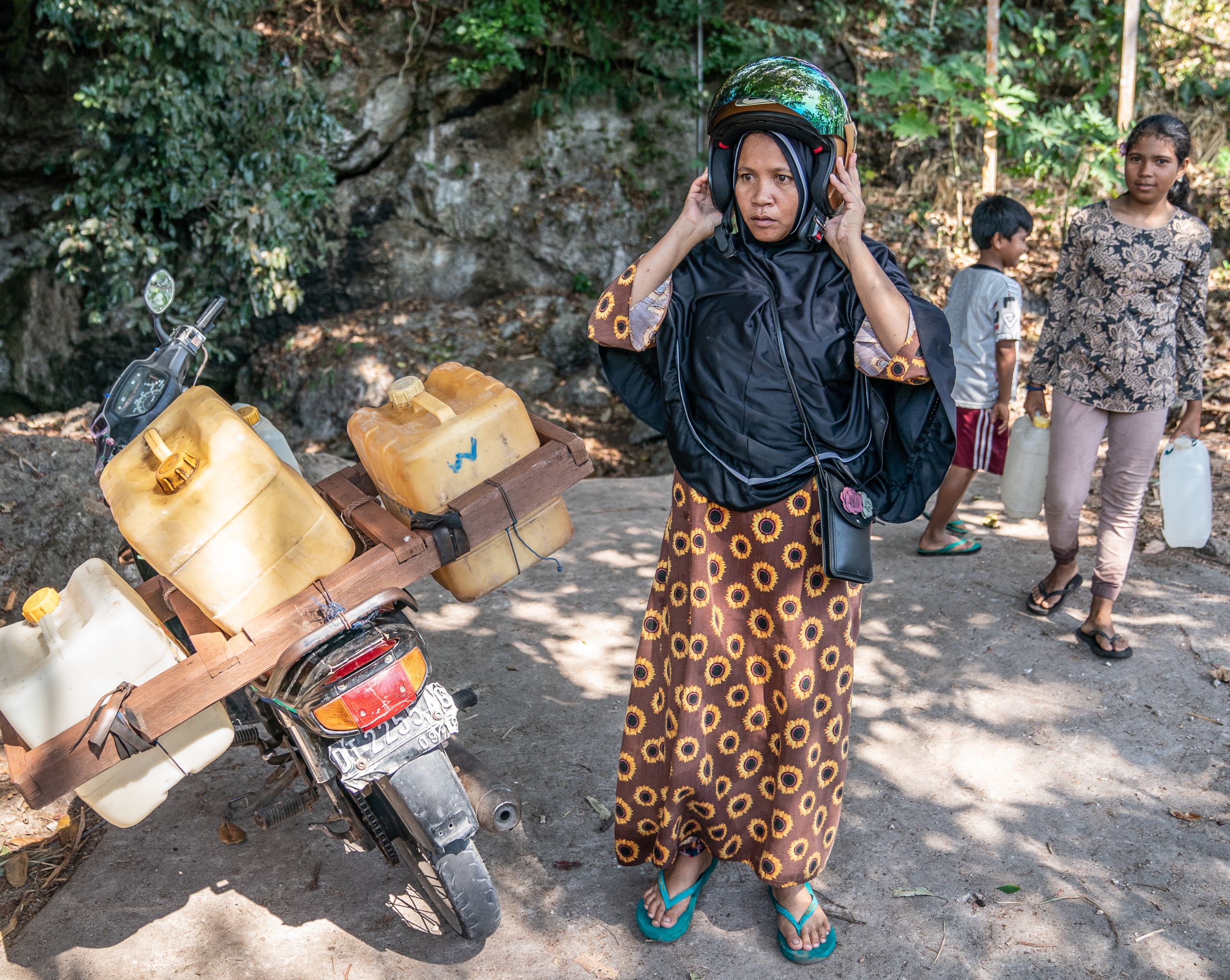
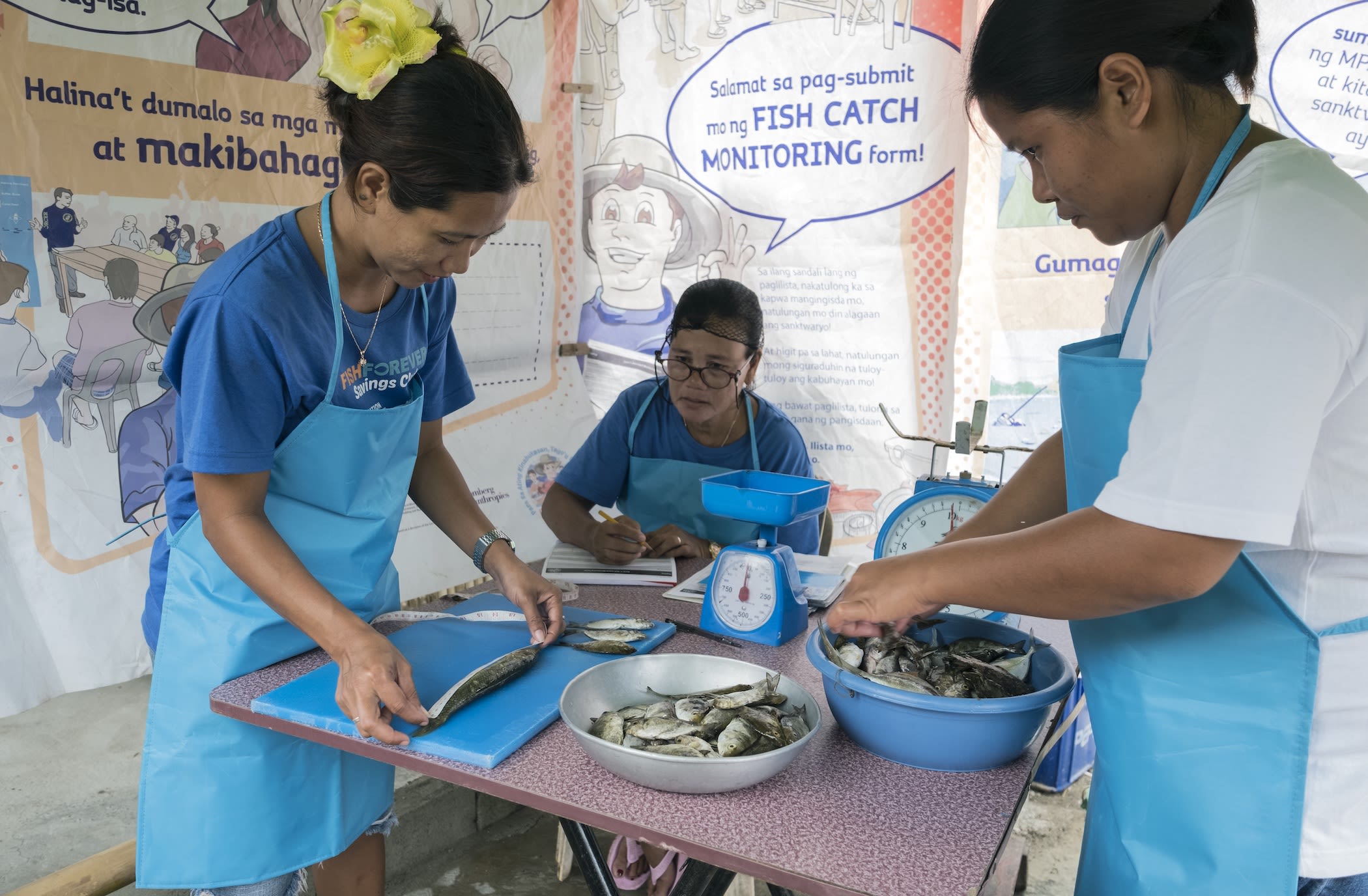
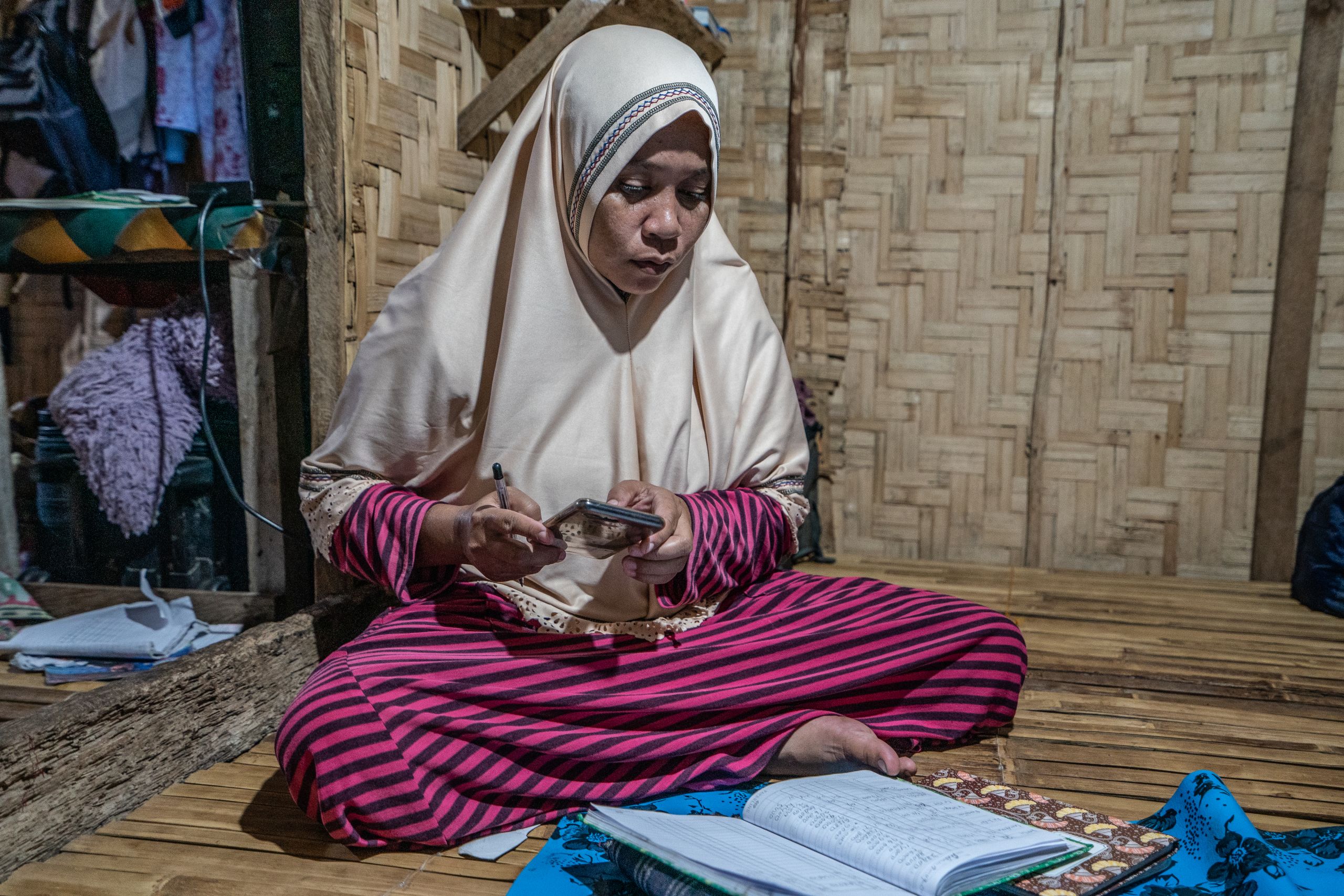
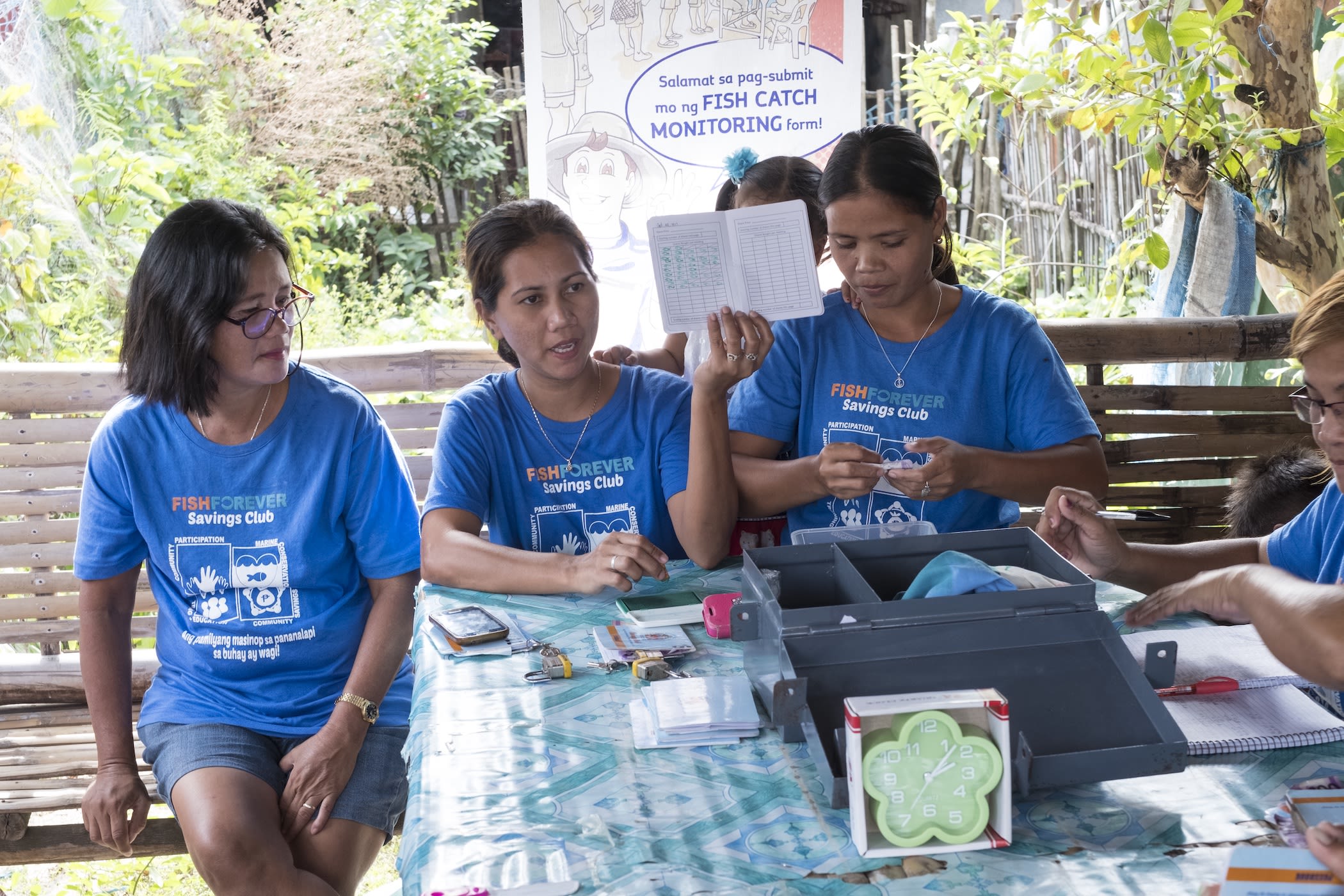
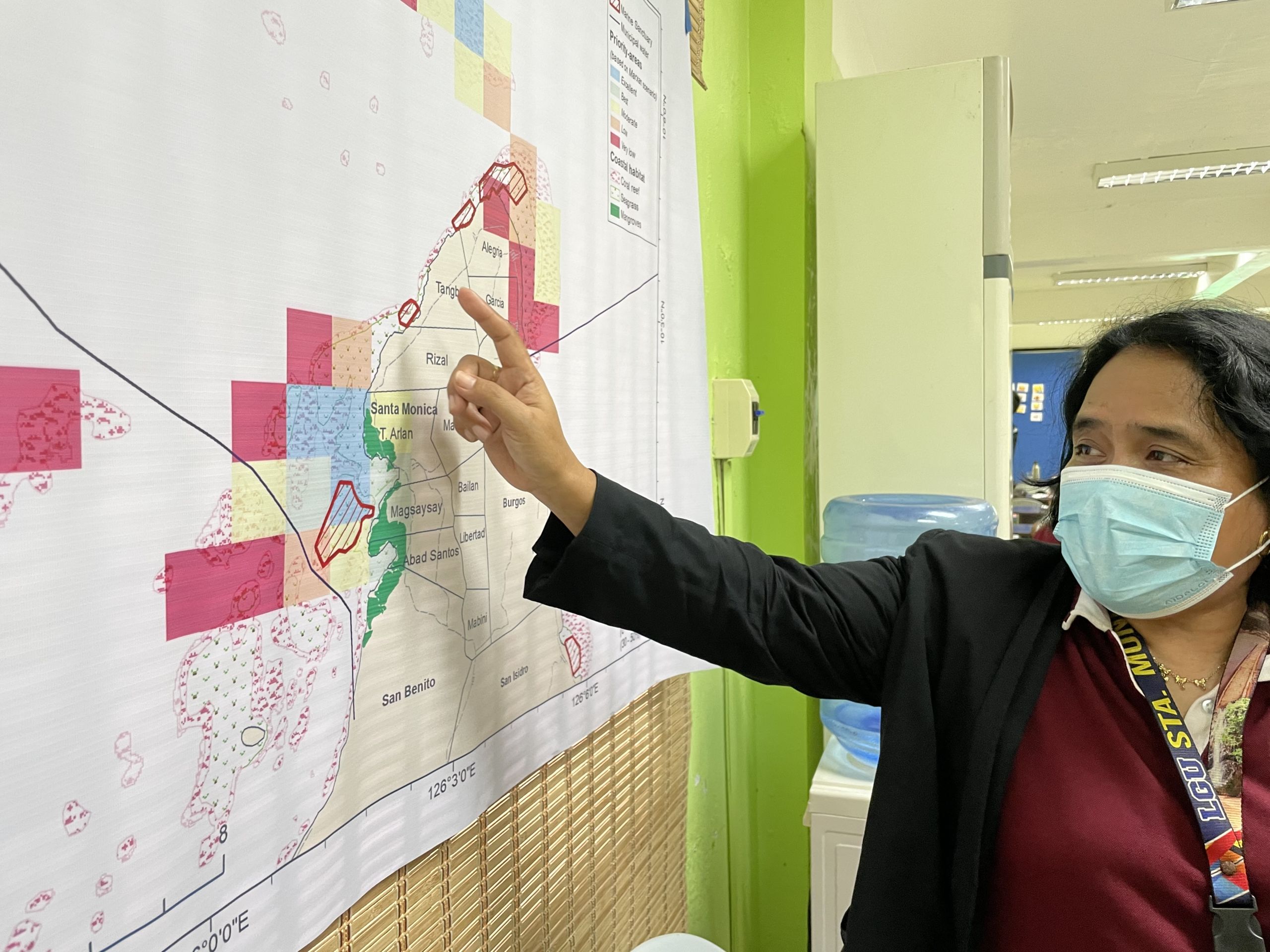

Processing fish in island towns adds value to the fish catch, with dried or marinated seafood fetching higher prices at the market. Women entrepreneurs are gaining prominence in many coastal communities, where marine products provide both food security and much needed income when the fishers cannot go out during bad weather.
Processing fish in island towns adds value to the fish catch, with dried or marinated seafood fetching higher prices at the market. Women entrepreneurs are gaining prominence in many coastal communities, where marine products provide both food security and much needed income when the fishers cannot go out during bad weather.

In Zamboanga Sibugay province, seaweed farming provides an alternative income source that helps fishing households become more financially resilient to climate impacts. The seaweed cultivated is the source of carrageenan, a popular global additive in food and cosmetic products.
In Zamboanga Sibugay province, seaweed farming provides an alternative income source that helps fishing households become more financially resilient to climate impacts. The seaweed cultivated is the source of carrageenan, a popular global additive in food and cosmetic products.

Gleaning for shells is often an undervalued fishing activity in major fish-exporting countries such as the Philippines and Indonesia. Usually done at low tide, gleaning provides food and extra money for coastal communities year round.
Gleaning for shells is often an undervalued fishing activity in major fish-exporting countries such as the Philippines and Indonesia. Usually done at low tide, gleaning provides food and extra money for coastal communities year round.

In Indonesia's Siompu Island, women and children fetch clean water from a cave for household use and for selling to neighbors.
In Indonesia's Siompu Island, women and children fetch clean water from a cave for household use and for selling to neighbors.

Measuring the size of fish and weighing them help communities monitor fisheries decline and abundance and evaluate their marine conservation efforts. Women’s participation in fisheries management has gained more recognition over time.
Measuring the size of fish and weighing them help communities monitor fisheries decline and abundance and evaluate their marine conservation efforts. Women’s participation in fisheries management has gained more recognition over time.

Women fish traders in Indonesia's Sulawesi islands are using the OurFish app to track transactions and family expenses and provide fish catch data. While upgrading their digital knowledge and becoming more financially resilient, they are also contributing to biophysical monitoring of their marine resources.
Women fish traders in Indonesia's Sulawesi islands are using the OurFish app to track transactions and family expenses and provide fish catch data. While upgrading their digital knowledge and becoming more financially resilient, they are also contributing to biophysical monitoring of their marine resources.

Fish Forever savings clubs, many led by women, have provided much-needed economic benefits to the Philippines' coastal communities. During the coronavirus pandemic, they helped strengthen the social fabric in many localities, providing food for essential workers and emergency loans to members.
Fish Forever savings clubs, many led by women, have provided much-needed economic benefits to the Philippines' coastal communities. During the coronavirus pandemic, they helped strengthen the social fabric in many localities, providing food for essential workers and emergency loans to members.

In the town of Santa Monica in the Siargao Islands, Municipal Planning and Development Coordinator Dianette Espanto Evangelista is one of many stakeholders designing marine reserves that will help fishing communities adapt to climate change.
In the town of Santa Monica in the Siargao Islands, Municipal Planning and Development Coordinator Dianette Espanto Evangelista is one of many stakeholders designing marine reserves that will help fishing communities adapt to climate change.
Even in traditionally male-dominated activities such as coastal law enforcement, women are helping to reduce illegal fishing activities. In the Siargao islands in the southern Philippines, Rare conservation fellow Gina Barquilla has battled violators unflinchingly.
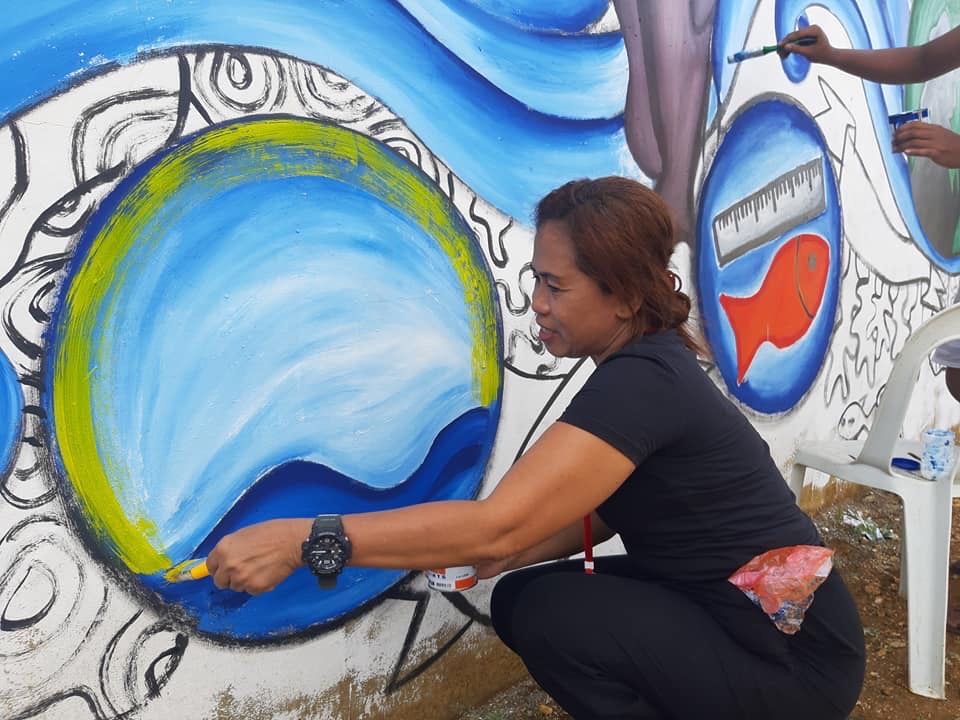
Unlike the Philippines where stronger storms have become recurring events, Indonesia’s coastal communities are experiencing climate change as a slow onset phenomenon. In recent years, women fishers in the Sulawesi islands have gradually seen the easterly winds arriving earlier and staying longer. With uncertainty in weather patterns, they have had to adjust their household income sources and financial strategies, with some help from training organized by Rare.
Hasrawati - Small business owner
In 2010, Hasrawati launched her small business with 3 million Indonesian rupiah, or $210 U.S. dollars. She bought ice and a Styrofoam box to store the fish she buys from 30 fishers in Banubanuajaya, her small village. She makes enough to feed her family and save a little money, but she has to be careful—fish catch and pricing can be unreliable, and climate change creates even more uncertainty for business. “We—fishers and buyers—are the most affected by climate change,” she shares. “There used to be more fish, and now there is no certainty about the beginning of east monsoon season.”
Hasrawati has noticed changes around her—a longer and stronger east monsoon season, coral bleaching, periods of drought, and fewer fish in the water. She saves money and sells other products to adapt. “If the weather is bad and it is difficult to catch fish, I sell fried green banana and other snacks to have extra income. Or I use my savings to cover expenses.” She has also noticed that other community women are affected by the changes but don’t save like her. “Here, most women work as fish sellers in the market, but when the money runs out, they ask me for a loan. I advise these women to manage their money wisely and save for urgent needs.”
Hasrawati believes that what she has learned about financial management has already helped her, and she wants other women in the community to benefit too. “I immediately practice the knowledge I gained from Rare’s financial literacy training in December. The other women also need these skills.” She found more inspiration to protect marine resources when she learned about the managed access and reserve (MA+R) areas in her community. “I think the program is good because the managed fishing areas are protected and closer, so it is safer for fishing. For us fish buyers, we can pay less for fishers’ boat fuel.” Hasrawati hopes for more fish one day and dreams of expanding her businesses to make more money to support her family.
Si Isa - Fish Buyer
Si Isa has been a fish buyer in Banunuajaya Village, Kulisusu for nearly 20 years. Starting in the octopus trade, she gradually expanded to selling pelagic and reef fishes from 50 fishers who regularly sell her their catch. She also sells kitchen essentials, fuel, and fishing equipment while raising her five children.
In recent years, changes in weather patterns have affected the fishing communities' livelihoods. With an extended dry season and easterly winds arriving earlier than usual, the fishers can no longer use just their sail; they have to buy engines for motorboats instead. Si Isa earns more profit when the winds are strong; but while fish prices are higher, she has to increase her stocks to make up for the days when fishers cannot go out to sea. In 2018, she began augmenting her income by supplying spring water to the villagers.
Si Isa avoids the pop-up markets selling cheap goods, set up in her village to take advantage of when the village's fishers catch more and earn more. She doesn't want to indulge in wasteful consumerism. Instead, she saves money and practices financial planning, believing that women have to manage their income and debt so their families can survive the lean season.
Saribulan - Fisher
Saribulan is one of only three active fisherwomen in her village. Every day, from 7 in the morning to 12 noon, she goes out to sea, by herself, looking for octopus or meti-meti. She used to regularly farm sweet potatoes but found fishing to be more profitable, get faster returns, and a better way to support her eight children and husband, who is blind. “I’m motivated to go to the sea because I need to make a living and pay for my children’s education.”
At 50 years old, Saribulan has noticed changes in her environment, and these changes have affected her catch. “When the weather is bad, such as strong winds and big waves, the water becomes cloudy and it is more difficult to catch a lot.”
To prepare for climate change, Saribulan saves the money she gets from selling her catch—what’s left after paying for gas, food, uniform, books, and shoes. She is proud of the financial management skills she has gained from the recent training with Rare. “My advice for fellow women in the village is this: manage your expenses. Save some money from the catch in the fishing season so you can face the west monsoon season or bad weather.”
Nurlini - Octopus and Fish Trader
Nurlini is an octopus and fish trader in Karae village in Siompu island. She gets her supply from 80 fishers. In the past decade, she has seen fish catch decline from 50 kilos to only 10 kilos per fisher, and the fish are getting smaller.
Changing weather patterns are adding more uncertainty to coastal fishers' livelihoods. The rainy season used to start in November and end by early February, but in recent years, it has become less predictable. The 33-year-old Nurlini also says she had never heard about typhoons until successive storms arrived in 2018 and 2019, destroying many houses. “There were walls and roofs and towers of houses flying all around us,” she recalls.
To cope with climate impacts, the people of Siompu are planting more fruit and vegetable gardens, saving extra income from their harvest for expenses during inclement weather. Nurlini honed her entrepreneurial skills and decided to sell more products including water, fuel, and sarong. “After attending the finance training, I never gave money to my children again to buy snacks in school, but I make sure they have a good breakfast, so they won’t starve.” Instead, she encouraged her children to put their allowance in a piggy bank. Nurlini says she exerts a lot of effort to be successful because she wants to set an example for her six children.

Hasrawati
Hasrawati
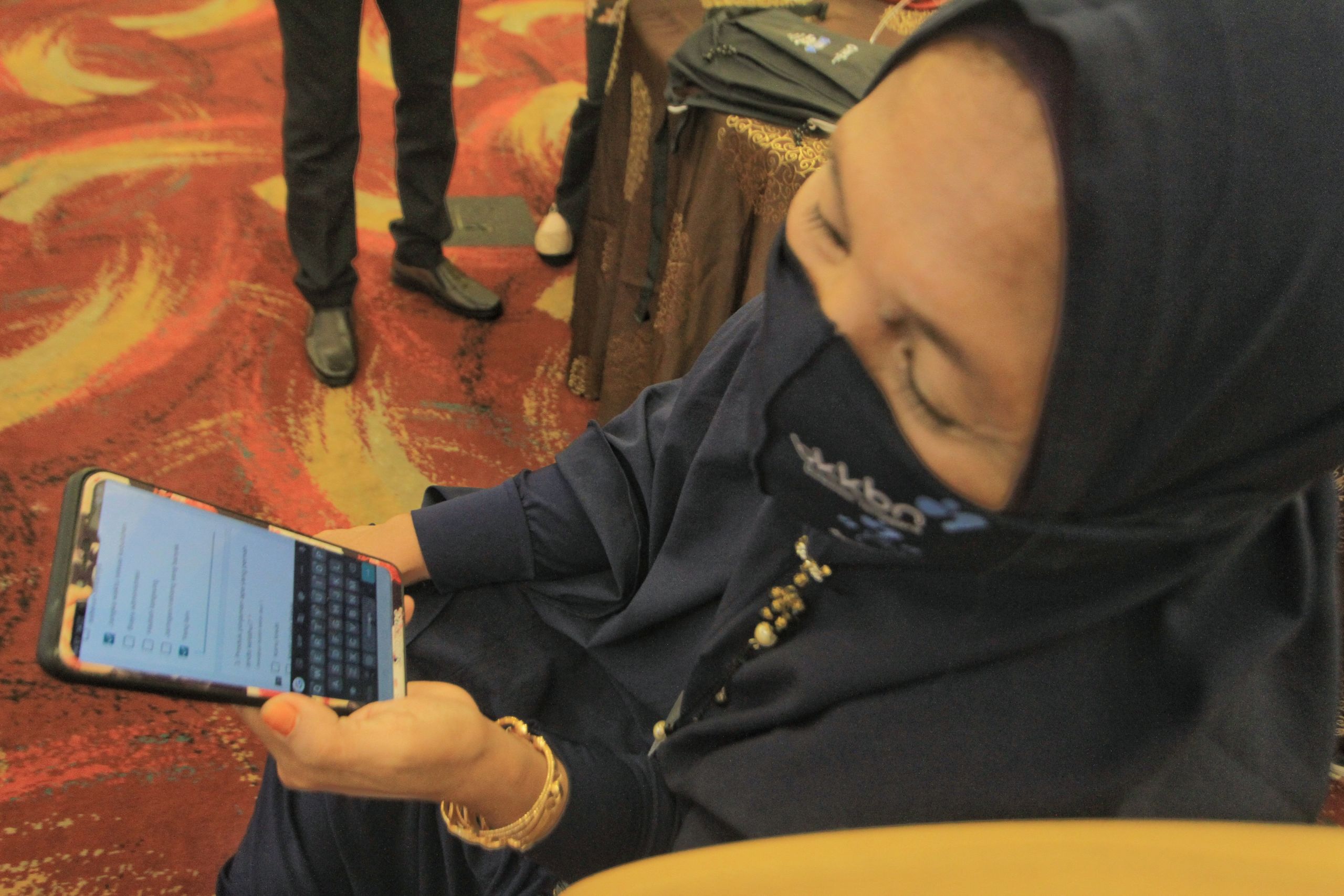
Si Isa
Si Isa
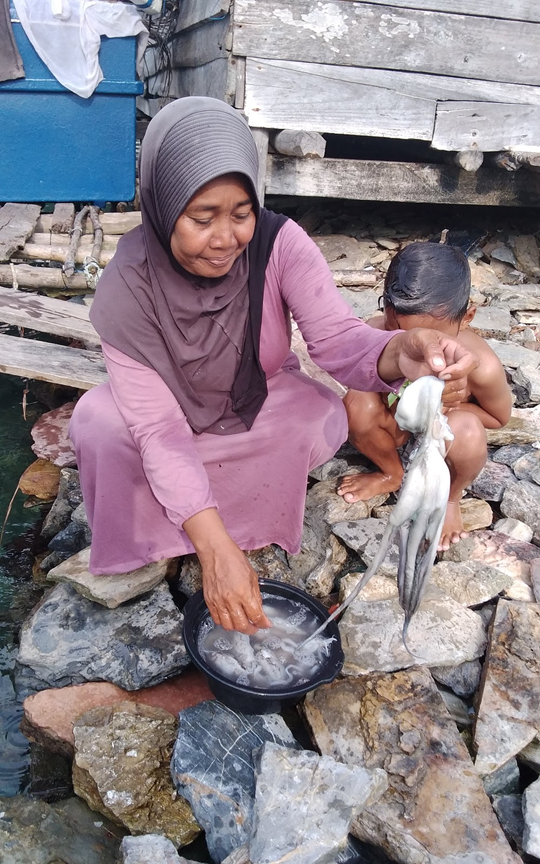
Saribulan
Saribulan
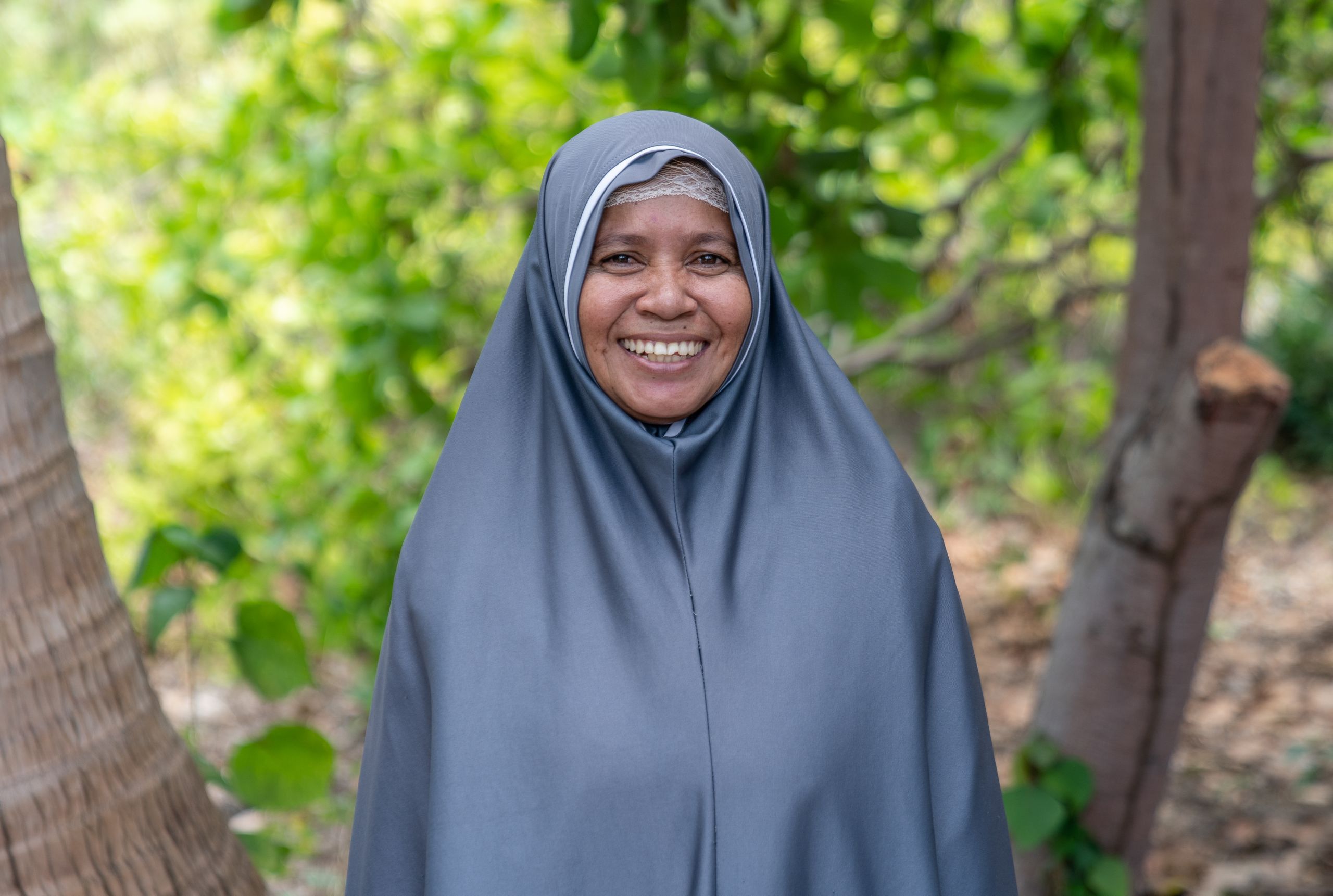
Nurlini
Nurlini
IN HER OWN WORDS
In many Fish Forever partner communities, Rare conservation fellows promote responsible fishing behavior to restore marine abundance in coastal areas. One such fellow, Marju Abella, shares her experience leading a local campaign in a TED Talk.
As climate impacts continue to challenge coastal fishing communities, many women have found a lifeline in community savings clubs. In the Philippines, more than 300 coastal communities have organized these self-help groups in 32 municipalities. The groups ease pressure on marine resources as fishers don't need to resort to overfishing in response to emergencies or disasters. More than 80 percent of the savings club members are women, and they have generated around $2.5 million in savings, loan payments, and neighborhood kitties in the last five years. Similar efforts are underway in Indonesia, Guatemala, Honduras and Mozambique.
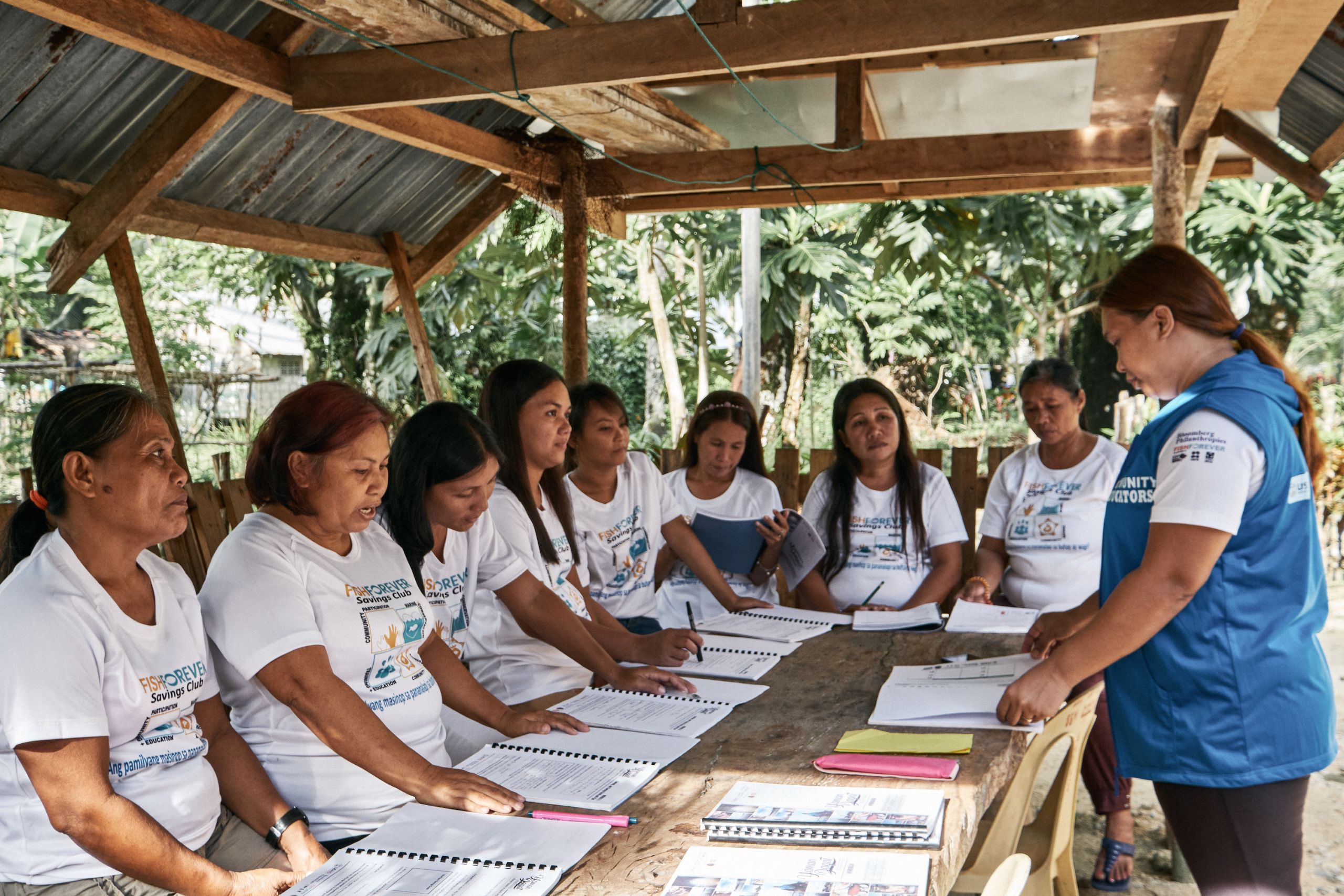
Rare works to promote gender equity for women and girls around the world. With support from Bloomberg Philanthropies, Germany’s International Climate Initiative, the Dutch Postcode Lottery, and other critical donors, Rare, together with partners, is empowering women and fisheries-dependent communities to adapt to climate change.
Story by Yasmin Arquiza with contributions from Larissa Hotra, Eva Medianti, Angel Uson, and Ade Yuliani
